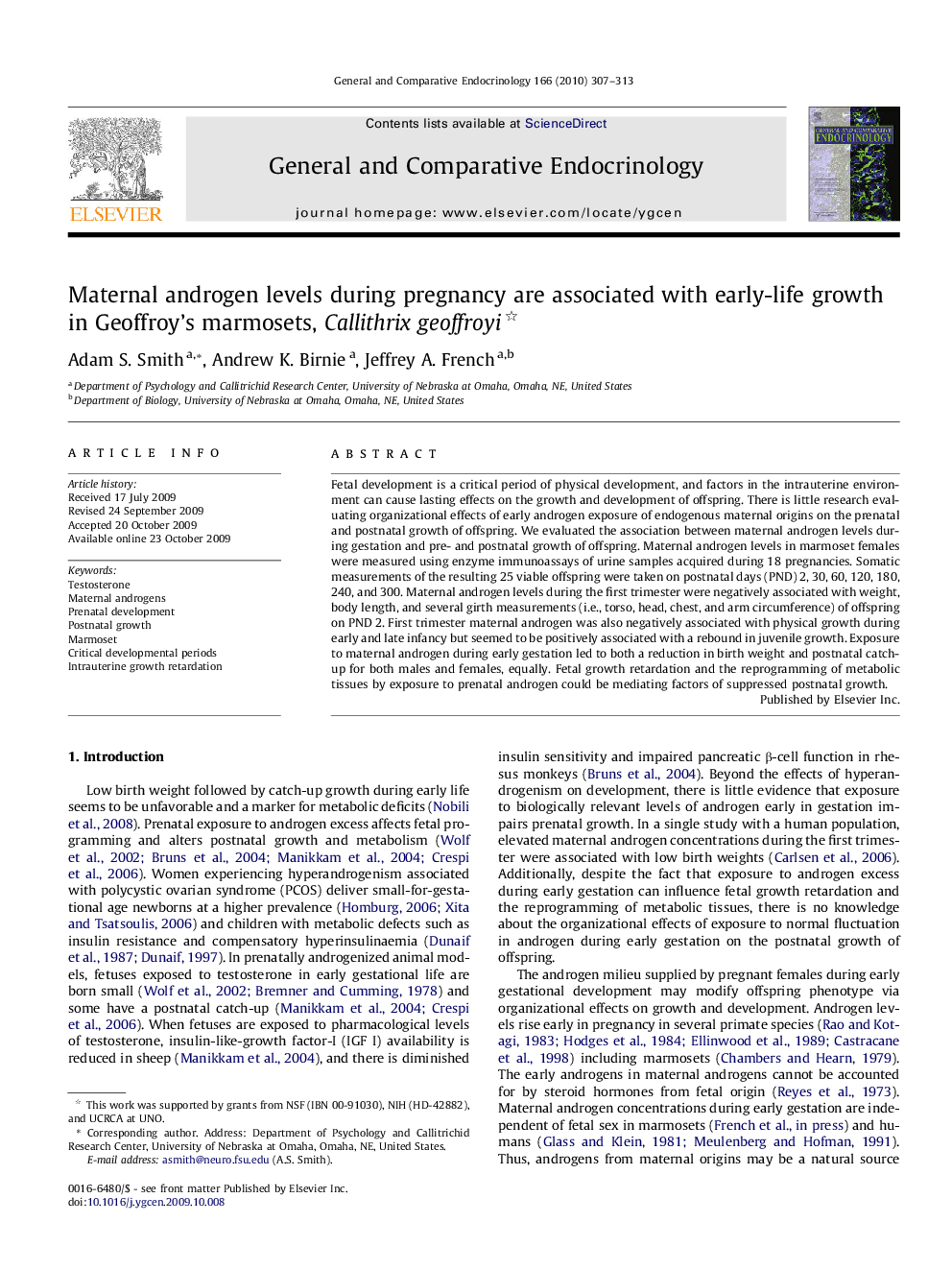| Article ID | Journal | Published Year | Pages | File Type |
|---|---|---|---|---|
| 2801120 | General and Comparative Endocrinology | 2010 | 7 Pages |
Fetal development is a critical period of physical development, and factors in the intrauterine environment can cause lasting effects on the growth and development of offspring. There is little research evaluating organizational effects of early androgen exposure of endogenous maternal origins on the prenatal and postnatal growth of offspring. We evaluated the association between maternal androgen levels during gestation and pre- and postnatal growth of offspring. Maternal androgen levels in marmoset females were measured using enzyme immunoassays of urine samples acquired during 18 pregnancies. Somatic measurements of the resulting 25 viable offspring were taken on postnatal days (PND) 2, 30, 60, 120, 180, 240, and 300. Maternal androgen levels during the first trimester were negatively associated with weight, body length, and several girth measurements (i.e., torso, head, chest, and arm circumference) of offspring on PND 2. First trimester maternal androgen was also negatively associated with physical growth during early and late infancy but seemed to be positively associated with a rebound in juvenile growth. Exposure to maternal androgen during early gestation led to both a reduction in birth weight and postnatal catch-up for both males and females, equally. Fetal growth retardation and the reprogramming of metabolic tissues by exposure to prenatal androgen could be mediating factors of suppressed postnatal growth.
